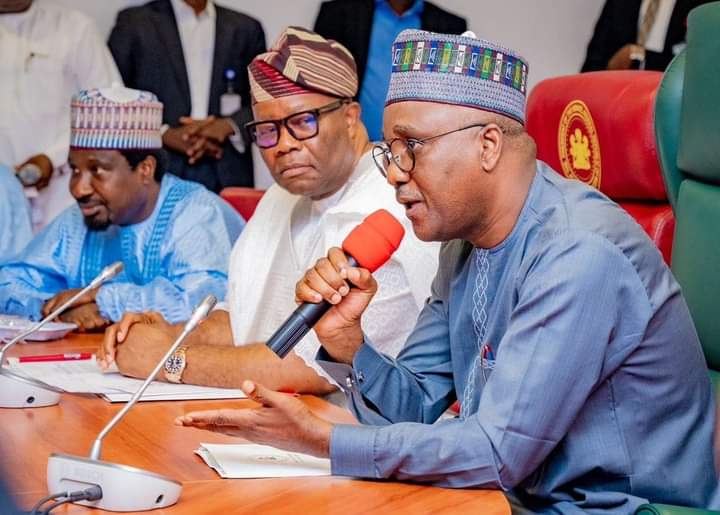The National Assembly has resolved to ensure that states, local governments, and the Organised Private Sector adhere to the approved minimum wage regulations. In a significant move, the Assembly is contemplating the seizure of allocations for those who fail to comply.
A confidential source disclosed to Punch that the National Assembly is determined to enforce compliance by considering the seizure of allocations from states and local governments that do not adhere to the new minimum wage guidelines.
This development comes as the National Assembly announces plans to include a specific clause in the upcoming Wage Award Bill, which will clearly define sanctions for non-compliance. The bill is expected to be passed following its submission by President Bola Tinubu.
Hakeem Ambali, the National Treasurer of the Nigerian Labour Congress (NLC), emphasized the need for political will to enforce these sanctions. He noted that while similar clauses existed in the previous Minimum Wage Act, they were insufficiently robust to deter violations.
“Such clauses have always been part of the bill. This isn’t the first time they’ve been included. However, the political will to enforce these provisions is crucial. In the previous act, the sanctions were not strong enough to be effective. If the Senate can ensure proper enforcement and oversee implementation, it will greatly benefit Nigerian workers,” Ambali remarked.
Ambali further stressed the importance of strong sanctions to ensure compliance. “Any proposed sanctions must be stringent enough to prevent violations of the law. States that have not fully complied with the ₦30,000 minimum wage have been identified by Labour, and some have started approving the new minimum wage. This indicates that non-compliance often stems from either inability or deliberate neglect, rather than a lack of funds,” he added.
He lamented that neglecting minimum wage payments harms not only the workers but also the states themselves, as motivated workers are crucial to productivity and development. “A well-compensated workforce is essential for progress. States that prioritize their workers see greater development,” Ambali concluded.
The National Assembly’s proactive approach aims to ensure that the minimum wage law is not only passed but also strictly enforced, providing much-needed relief and support to Nigerian workers.
This article is sourced from The Punch newspaper, with minor edits and adaptations by The Spectacles for clarity and readability.
